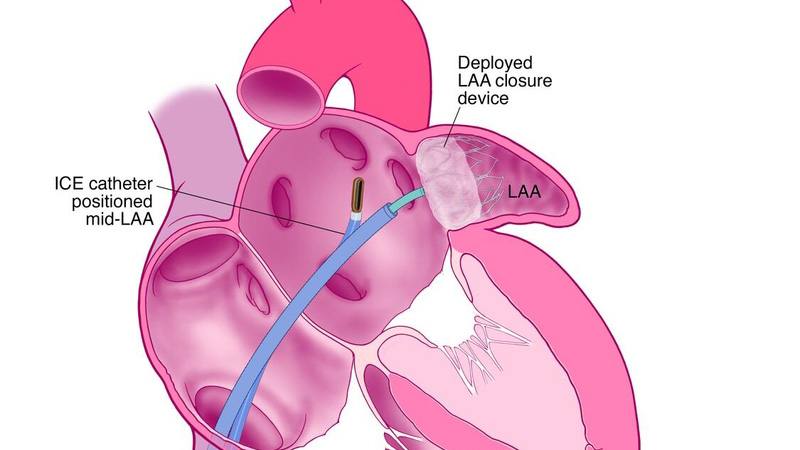-
Heart procedure to reduce stroke risk should manage small leaks

Leakage after left atrial appendage closure matters more than previously thought, according to new Mayo Clinic research. This research shows that even small leaks are associated with a 10%–15% higher risk of adverse events. A news release from the American College of Cardiology further outlines the research study and the findings published in JACC: Clinical Electrophysiology.
The left atrial appendage is a small, irregular-shaped sac on the left side of the heart where blood clots can form. If a clot travels it can block an artery in the brain and disrupt blood flow, causing a stroke.
Blood thinners are commonly used to decrease the risk of stroke for patients with atrial fibrillation. But some people are not good long-term candidates for this therapy. This could be because of drug interactions, side effects such as bleeding or the logistics of necessary clinical checkups. Clamping the left atrial appendage opening, especially in patients with atrial fibrillation, greatly reduces the risk of stroke and reliance on blood thinners.
The Watchman device used to seal the closure is carefully positioned to avoid leaks that might reduce its effectiveness. Yet some amount of leakage is relatively common with this type of procedure because each appendage has a unique size and shape, according to Mohamad Alkhouli, M.D., an interventional cardiologist at Mayo Clinic and lead author of the study.
While only a small number of patients had problems related to clotting during the follow up time, Dr. Alkhouli and researchers note that improvements must continue to be made to eliminate leaks and further reduce stroke risk through this preventive procedure.
The ACC news release further details the study findings and ways that medical advancements in imaging and placement can improve outcomes.







